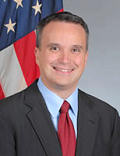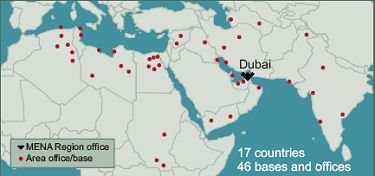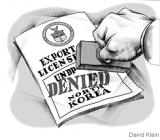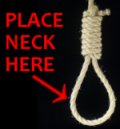 Apparently feeling that Michael Moore’s new movie wasn’t getting enough publicity, the Bureau of Industry and Security (“BIS”) served its own subpoena on Moore, giving Moore yet another opportunity to talk about persecution on the late night talk show circuit. Additionally, the BIS subpoena sent a sly message to Treasury’s Office of Foreign Assets Control (“OFAC”), which is also investigating Moore, that the enforcement folks at BIS are just as rough and tough as those at OFAC.
Apparently feeling that Michael Moore’s new movie wasn’t getting enough publicity, the Bureau of Industry and Security (“BIS”) served its own subpoena on Moore, giving Moore yet another opportunity to talk about persecution on the late night talk show circuit. Additionally, the BIS subpoena sent a sly message to Treasury’s Office of Foreign Assets Control (“OFAC”), which is also investigating Moore, that the enforcement folks at BIS are just as rough and tough as those at OFAC.
I can’t find a copy of the subpoena, but it’s pretty easy to guess what’s going on here. BIS can penalize exports to Cuba under EAR section 746.2, which requires a license from BIS for all exports to Cuba not subject to certain narrow exceptions set forth in the rule. (OFAC on the other hand penalizes financial transactions with Cubans or the Cuban government.)
So BIS is clearly looking for something exported by Moore to Cuba. One possibility is the horse boat he road in on. We’ve seen that before when BIS nailed a sport fishing boat that chased a fish into Cuban waters. Outside of that it’s hard to see what Moore would have exported. Maybe he spit out some gum he brought with him from the United States. This would be problematic because section 746.2 doesn’t contain the LVS exception for limited value shipments that might otherwise cover the export of a stick of chewed-up chewing gum to Cuba.
Back to the boat theory, however, there may be an applicable exemption, because section 746.2(a)(1)(i) permits temporary exports to Cuba “by the news media,” which puts us back to pretty much where things are over in the OFAC proceeding. There the question is whether Moore is a “journalist” and therefore entitled to the general license for journalists to travel to Cuba. In BIS-land, the issue will be whether Moore is a member of the “news media” or not.
Unless, of course, they can nail Moore for that piece of gum he spit out on El Malecón.

 Posted by
Posted by  Category:
Category: 

 Assistant Secretary of Commerce Christopher Padilla
Assistant Secretary of Commerce Christopher Padilla  Houston-based oil-drilling and oilfield services company
Houston-based oil-drilling and oilfield services company 
 An
An  The Bureau of Industry and Security (“BIS”) has
The Bureau of Industry and Security (“BIS”) has 

